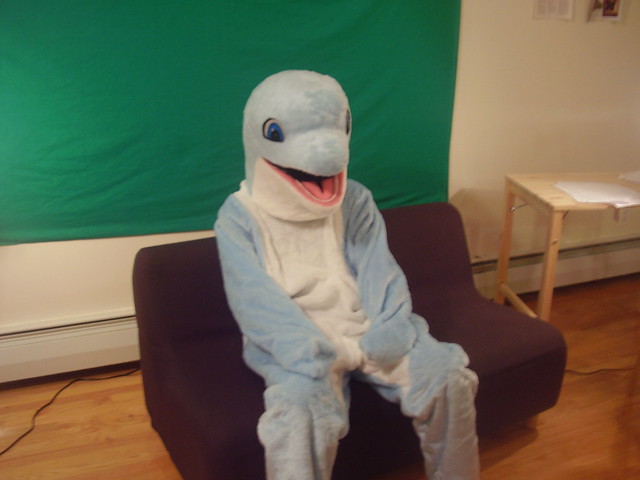The picture above is from the ending of the film adaptation of
Fight Club, and it happens to be
one of my favorite film endings of all time. Turns out I love the end of the novel just as much, despite it being so different.
I, like pretty much everyone out there, was introduced to Chuck Palahniuk's novel after seeing David Fincher's
film. And don't worry, there won't be any spoilers here for those who don't know the twist in the story. Although, it's 2011 so you should probably get on the ball and watch it already. It's a classic. From the year 1999.
Actually, due to how well the film was made, and how much it drew from the book, I was a little disappointed reading it at first. If only because all the wonderful lines I was reading I had already heard spoken from the mouths of Edward Norton, Brad Pitt, and Helena Bonham Carter. The style of the writing and the direction of the film are also so remarkably similar, it felt like I was reading the screenplay. And I'm not being critical of the novel. I just wish I had read it before seeing the film so I could appreciate it more fully.
But the ending...that's where I saw the biggest difference. One is optimistic, the other a little more pessimistic and open to interpretation. But just as good. So, if you've seen the film and don't know if you should read the book, there ya go. Read it for the end. It's a short novel anyway, so go for it.
I've heard a lot of words thrown around describing the story. That's it's nihilistic. That it's about the emasculation of men by a consumerist society. And sure, it contains those things. But that's not what the story is about. Tyler Durden, the conveyor of all these ideas, is the antagonist after all.
So what is it about? Just look at the picture above. It's about reconnection.
It's about a having a life with substance, and not just filler.
Oh, not my refrigerator. I'd collected shelves full of different mustards, some stone-ground, some English pub style. There were fourteen different flavors of fat-free salad dressing, and seven kinds of capers.
I know, I know, a house full of condiments and no real food.
I like this quote because of how accurately it describes my own fridge. Having 3 different types of teriyaki sauce is normal, right? (Please recall that Tyler's refrigerator was filled with bags of human fat and frozen body parts. If your fridge reflects your life, then Palahniuk isn't recommending Tyler's either).
It's about identity; an identity that's defined by what you do and who you're with, not by the things you own, or how much IKEA furniture fits in your condo.
You buy furniture. You tell yourself, this is the last sofa I will ever need in my life. Buy the sofa, then for a couple years you're satisfied that no matter what goes wrong, at least you've got your sofa issue handled.
Identity becomes such a major theme in the novel. The narrator isn't named. The members of Fight Club and Project Mayhem are unnamed until death. ("His name is Robert Paulson. His name is Robert Paulson.") The narrator uses fake names in his support groups. And then, of course, the twist. And that's the last time I'm using that word, because I'm starting to feel like M. Night Shyamalan.
But over and over I see people claiming the novel is about the state of declined masculinity in America. That it's about the feminization of men. Some claim it to be anti-feminist. Some that it's
pro-feminist:
It's a man's movie, supposedly, so why did I think it was the best feminist statement of the 90s? Maybe because it was time to watch a man learn what women have always known: That living a life defined by home furnishings, fashion, commercialized domesticity and constant messages about how your body should look can literally drive you batty.
And despite how much I love the above quote, it still doesn't get to the root of the novel. It's still determined to pit men against women. But it's beyond that. It's about HUMAN identity.
Palahniuk himself
claims he is a romantic and that all his novels are romantic comedies. Sure, there's a lot of cynicism, irony, and nihilism in his writing. But so says Palahniuk:
You have to unfold a world of unrest, disgust, un-wellness before you can have an epiphany of well-being.
And that's what the story is about. Everything in the novel and the film work towards creating "one perfect moment" -- an epiphany of well-being.
I've met God across his long walnut desk with his diplomas hanging on the wall behind him, and God asks me, "Why?"
Why did I cause so much pain?
Didn't I realize that each of us is a sacred, unique snowflake of special unique specialness?
Can't I see how we're all manifestations of love?
I look at God behind his desk, taking notes on a pad, but God's got this all wrong.
We are not special.
We are not crap or trash, either.
We just are.
We just are, and what happens just happens.
And God says, "No, that's not right."
Yeah. well. Whatever. You can't teach God anything.














